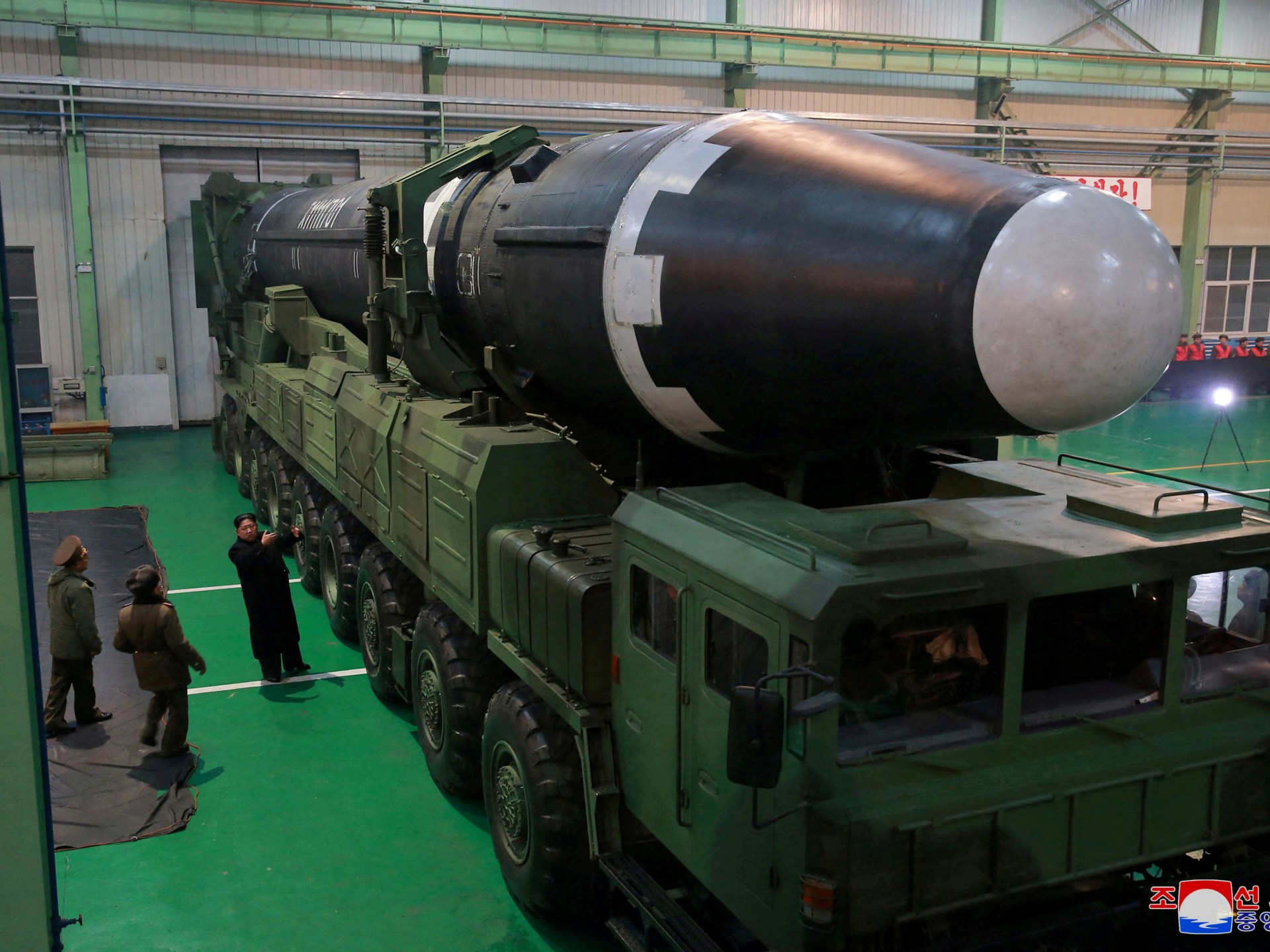Russian lawmakers to debate seizing property of those who ‘discredit’ army
A bill to be voted on next week aims to confiscate assets of Russians spreading ‘deliberately false’ information amid Ukraine war.
Russia’s parliament will consider a law allowing for the confiscation of money, valuables and other property from those deemed to spread “deliberately false information” about Moscow’s military actions, a senior lawmaker has said.
Vyacheslav Volodin, speaker of the State Duma, wrote in a Telegram post on Saturday that a bill has been developed in an attempt to punish “scoundrels” who “pour mud” on Russia and its soldiers participating in the war in Ukraine, which is approaching its two-year mark.
He said the bill will be submitted to the Duma, which is Russia’s lower house of parliament, on Monday.
The proposed measure would apply to those publicly inciting “extremist activities” or calling for the introduction of sanctions against Russia, the speaker explained.
It would also be applicable to those “discrediting” the armed forces, a criminal offence under a law adopted as part of Moscow’s crackdown on dissent after it sent troops into Ukraine in February 2022.
Those found guilty also face being stripped of any honorary titles.
“Everyone who tries to destroy Russia, betrays it, must suffer the deserved punishment and compensate for the damage inflicted on the country, at the cost of their property,” Volodin said.
The existing law against “discrediting” the Russian military, which covers offences such as “justifying terrorism” and spreading “fake news” about the armed forces, is regularly used to silence critics of Russian President Vladimir Putin.
Existing laws
Multiple activists, bloggers and general Russian citizens have received long jail terms under the existing law.
Popular writer Dmitry Glukhovsky was handed an eight-year jail term in absentia after a Moscow court found him guilty in August of deliberately spreading false information about Russia’s armed forces.
One of the country’s bestselling novelists, known under the pen name Boris Akunin, was charged under the law and added to the Russian register of “extremists and terrorists”.
In November, a court in St Petersburg jailed Sasha Skochilenko, an artist and musician, for seven years for swapping supermarket price tags with antiwar messages.
The month before, Russian blogger Aleksandr Nozdrinov received an 8.5-year term for posting photos of destroyed buildings in Kyiv, along with a caption implying that Russian troops were responsible.
Meanwhile, attacks on the ground continue. On Saturday, Russian forces shelled the southern Ukrainian town of Huliaipole, local governor Yuriy Malashko wrote on Telegram. Earlier, regional Ukrainian officials reported that one person was killed when Russian forces shelled the southern Kherson region overnight.
In southern Russia, close to the Ukrainian border, an exploding drone hit a gas pipeline on the outskirts of the city of Belgorod, regional governor Vyacheslav Gladkov reported on Telegram, blaming Ukraine for the attack.
The European Union said it will drastically increase ammunition production this year in response to Ukraine’s growing pleas for support. It also aimed to impose a new round of sanctions on Russia next month to mark the second anniversary of Moscow’s invasion, adding to its previous 12 rounds of sanctions.




